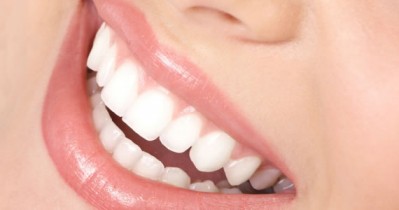Improve My Smile
Porcelain Veneers
Porcelain veneers are custom made used to recreate the natural look of teeth, while also providing strength and resilience comparable to natural tooth enamel. Porcelain Veneers are an excellent choice for those looking to correct the position of tooth, tooth shape, size, and tooth whitening.

Veneer Consultation
Ask your dentist about veneers is the first step in determining if veneers are the right you, or if there are alternate solutions available. Speak with your dentist about what you want for a successful result.
Your dentist will most likely begin with a smile analysis to decide what steps are necessary to achieve the smile you desire. In addition, your dentist may create a diagnostic mock-up that will allow you to see what your smile will look like before you start.
The Process of Porcelain Veneers
Porcelain laminate veneers consist of several thin ceramic layers which replace original tooth enamel, and an adhesive layer. To apply a veneer, a very small amount of the original tooth enamel is removed, usually less than a millimeter. This allows room for the porcelain veneer to fit within the mouth and restore a natural appearance of the teeth while allowing proper lip support and create a better appearance than the original teeth.
The bond between original tooth and porcelain veneer is critical as it provides a strong bond which is essential for correct veneer function. Light-sensitive resin is applied between the original tooth and the veneer and then hardened using a special curing light.
Porcelain veneers are a very successful option in many situations where the original tooth has poor color, shape, and contours. It is also a good choice for fractured teeth, gaps between teeth, and in some situations where the tooth position is compromised and there are minor bite-related problems. For some people, superficial stains do not respond well to tooth whitening or bleaching. In these situations, a porcelain veneer may be the best option.
Minimal Prep or “No-Prep” Veneers
An alternative to traditional veneers are no prep or minimal prep veneers.
No-prep” or minimal preparation veneers typically don’t require the dentist to remove as much tooth material—are bonded to the front surface of your teeth. Often, the placement of no-prep veneers can be done more quickly and with less discomfort than traditional veneers. This is a good option in patients with smaller teeth.
Your dentist will let you know if you are a good candidate for minimal preparation or “no-prep” veneers and if this option makes a sensible treatment plan.
The Benefits of Veneers
Since veneers are individually sculpted for each patient, it is hard to tell the difference between a veneer and a natural tooth. Unlike natural teeth, custom-made veneers resist coffee and tea stains, and cigarette smoke because they are made of highly polished stain resistant material.
With veneers—as opposed to crowns—your natural teeth remain largely intact with only a minimal amount being altered to fit the veneer.
For teeth that resist whitening, veneers can make even the darkest teeth appear bright white.
Dentists may also recommend veneers to quickly fix minor twists, overlaps, and small gaps.
In a healthy mouth treated with porcelain veneers—and where destructive forces are minimized or eliminated—a patient should be able to use porcelain veneers like his or her own teeth. Although they’re very strong, veneers are also brittle. You should avoid the same excessive stresses you would avoid with non-veneered teeth: don’t bite your fingernails, chew ice, or open beer bottles with your veneers!
Maintenance of a Porcelain Veneer
Maintaining porcelain veneers is actually quite simple: Treat them as you would your original teeth, with routine brushing and flossing. Using non-abrasive fluoride toothpaste will typically be suggested by your dental professional.
One week after your veneers are placed, you will to return to the office for a follow-up visit and evaluation so the dentist can see how your mouth is reacting to the veneers. Even if you feel the veneers are a success, this appointment is vital to your future oral health.
If you have a habit of grinding or clenching your teeth at night a protective guard may be necessary.